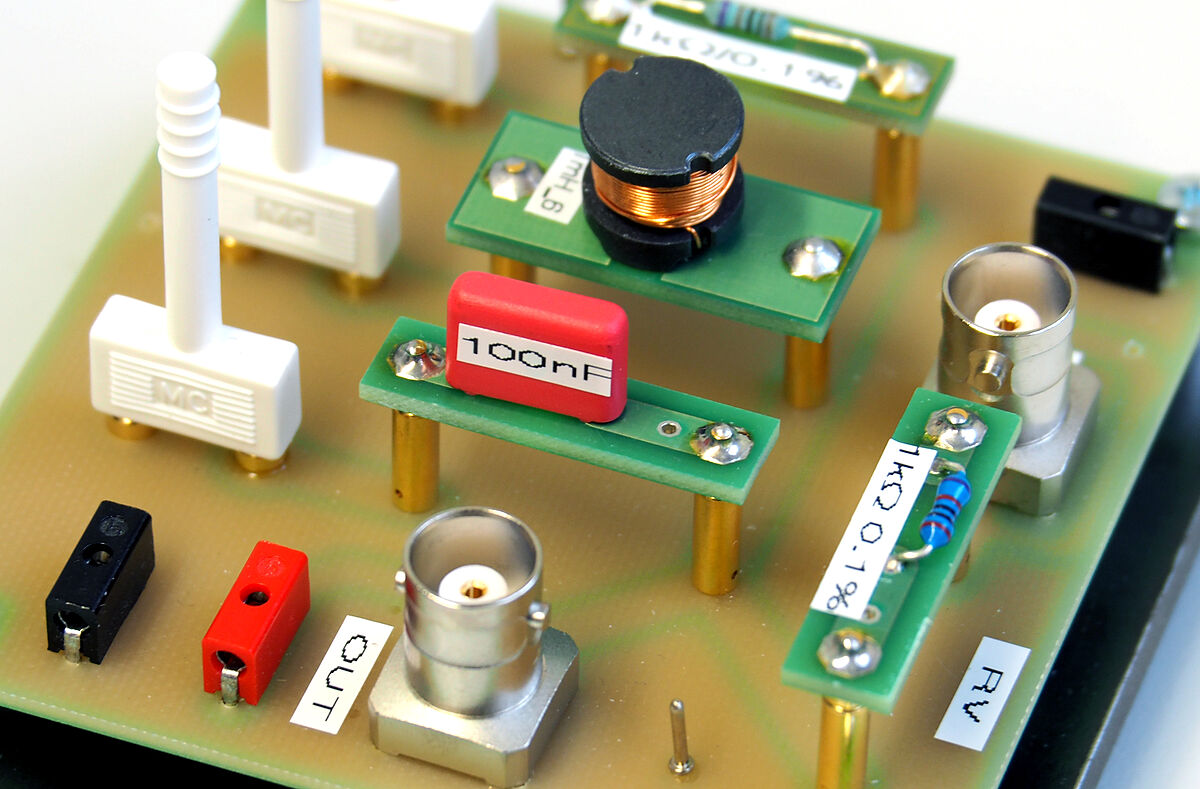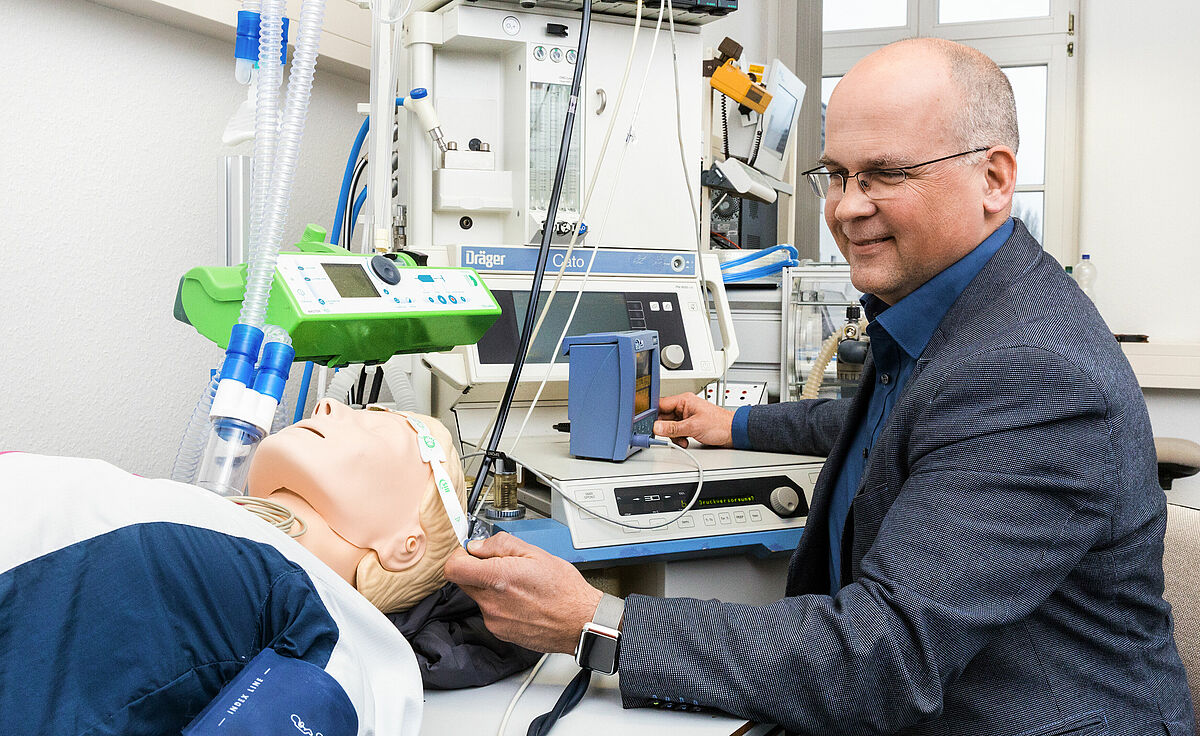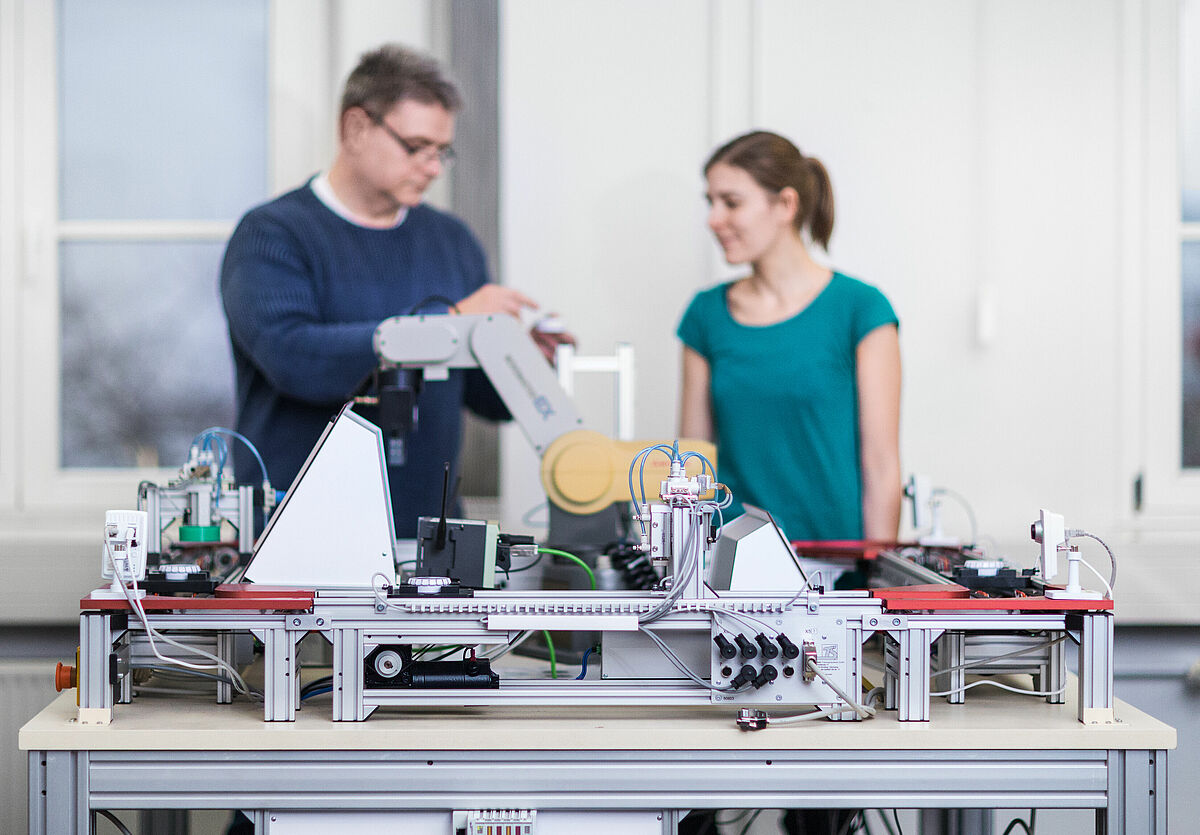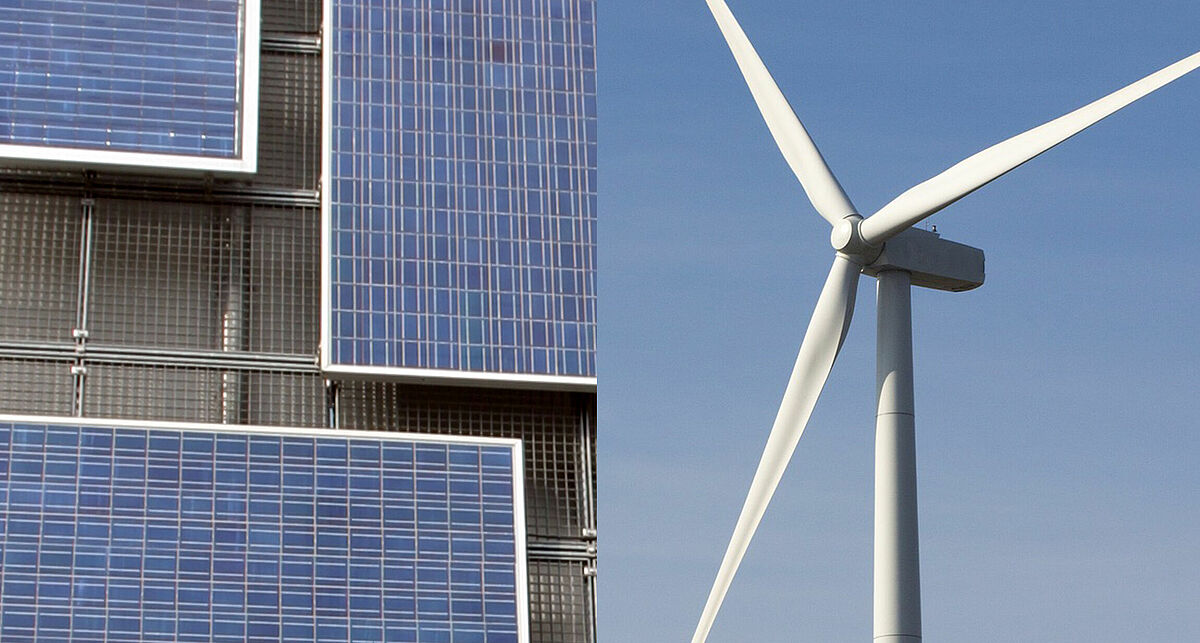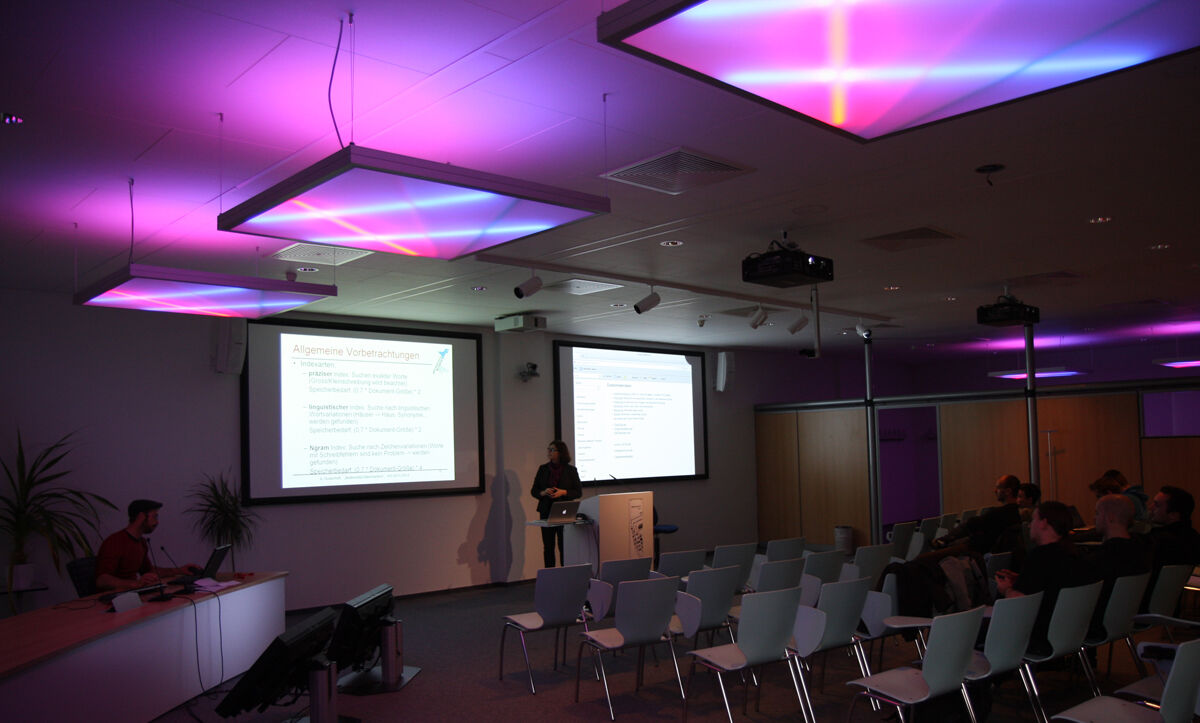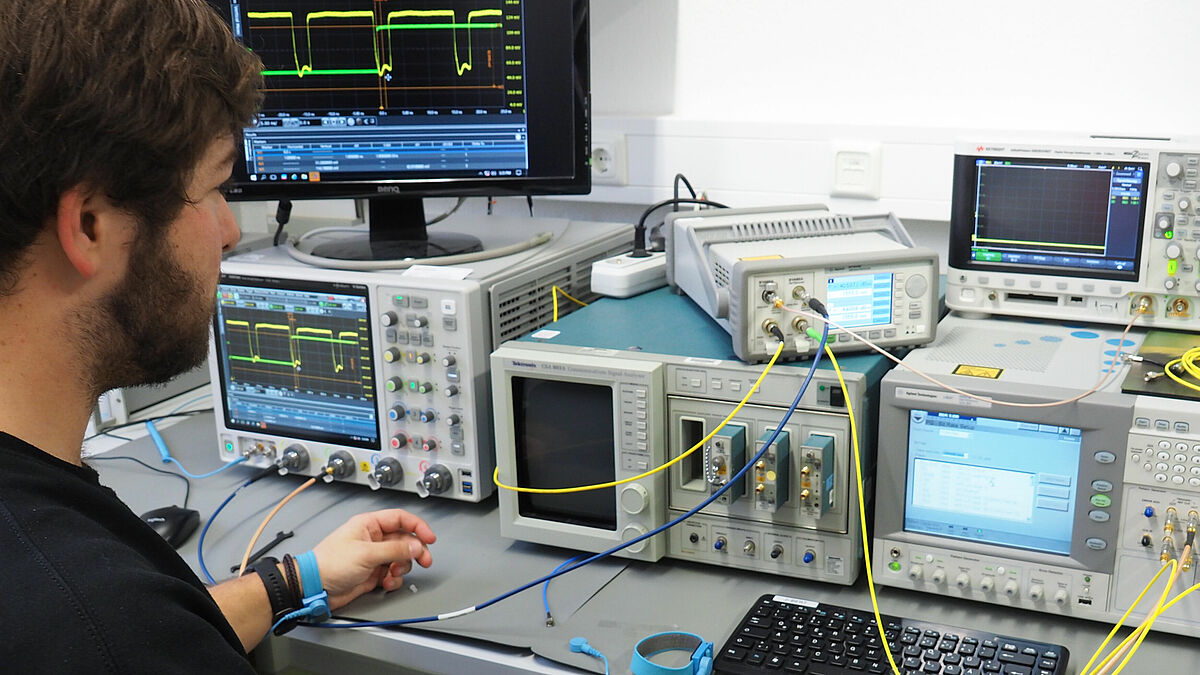Areas of Expertise
Electrical Engineering
Course programme
Teaching a a large number of basic courses, the subject area Electrical Engineering makes a significant contribution to imparting basic knowledge to our students for undergraduate degree programmes at the Faculty of Engineering.
basic subjects:
- Mathematics
- Physics
- Fundamentals of electrical engineering and electronics
- Theoretical electrical engineering
- Measurement technology
subjects based on the professors' specific areas of appointment and teaching competences:
- Microprocessor technology
- Device technology
- Renewable Energies and Energy Conversion
Research
- Optical sensor technology
- Spectral measurement technology
- Numerical calculation methods with result verification
- Signal processing methods (medical technology)
- Regenerative energies
- Synchronous generators with permanent magnet excitation for low powers
Automation Technology and Mechatronics
Course programme
The subject area of Automation Technology and Mechatronics deals with sensor, actuator, control and regulation technology in conventional or embedded systems up to their application in maritime, medical and automotive sectors or the automation of industrial processes.
- Automation technology
- Control engineering
- Sensor technology
Research
Research is focused on Maritime Automation, Medical Automation and Industrial Automation Technology.
In addition, the CEA group (Computational Engineering and Automation) performs in various cross-departmental, interdisciplinary research projects.
Electrical Power Engineering
Course programme
From provision to consumption of electrical energy: comprehensive knowledge on all aspects of modern electrical energy supply is taught by the subject area of Electrical Power Engineering.
Whether decentralised regenerative generation, intelligent transmission and distribution or efficient use by the end consumer – students get an overview on technological, economic and environmental aspects of energy technology.
Engineers perform a broad spectrum of tasks ranging from research and development, project planning, construction and commissioning to the operation and service of complex technical systems. Therefore, the professional qualification includes mastering basic methods and skills as well as insights into related sub-disciplines such as modern building technology.
Computer Science
Course programme
The various degree programmes in applied computer science and IT forensics focus on many aspects of computer science. This universal education enables students to choose between a wide range of jobs, as they get to know a variety of technologies during their studies. Furthermore, it promotes the ability to quickly familiarise themselves with new subject areas. In addition to the theoretical training in lectures and seminars, there are numerous, individually supervised projects on state-of-the-art technology.
Research
The CEA group (Computational Engineering and Automation) performs in various cross-departmental, interdisciplinary research projects.
The focus of research at the chair of Prof. Raab-Düsterhöft is on databases, knowledge and language processing as well as information retrieval.
Communication Technology
Course programme
The subject area Communications Technology focuses on coping with the rapidly increasing amount of information that is exchanged via the Internet, for example. State-of-the-art digital communication systems for fibre optic, radio and wired transmission – but also conventional analogue systems – play an important role.
- Communication systems and high-frequency engineering
- Signals and Systems in Communications Engineering
- Electronic Circuits
- Optical fibre and radio transmission
- Digital Data Transmission
Research
Professors, staff and students work together in the interdisciplinary research group Communications Signal Processing Group (CSP) on various research projects.

